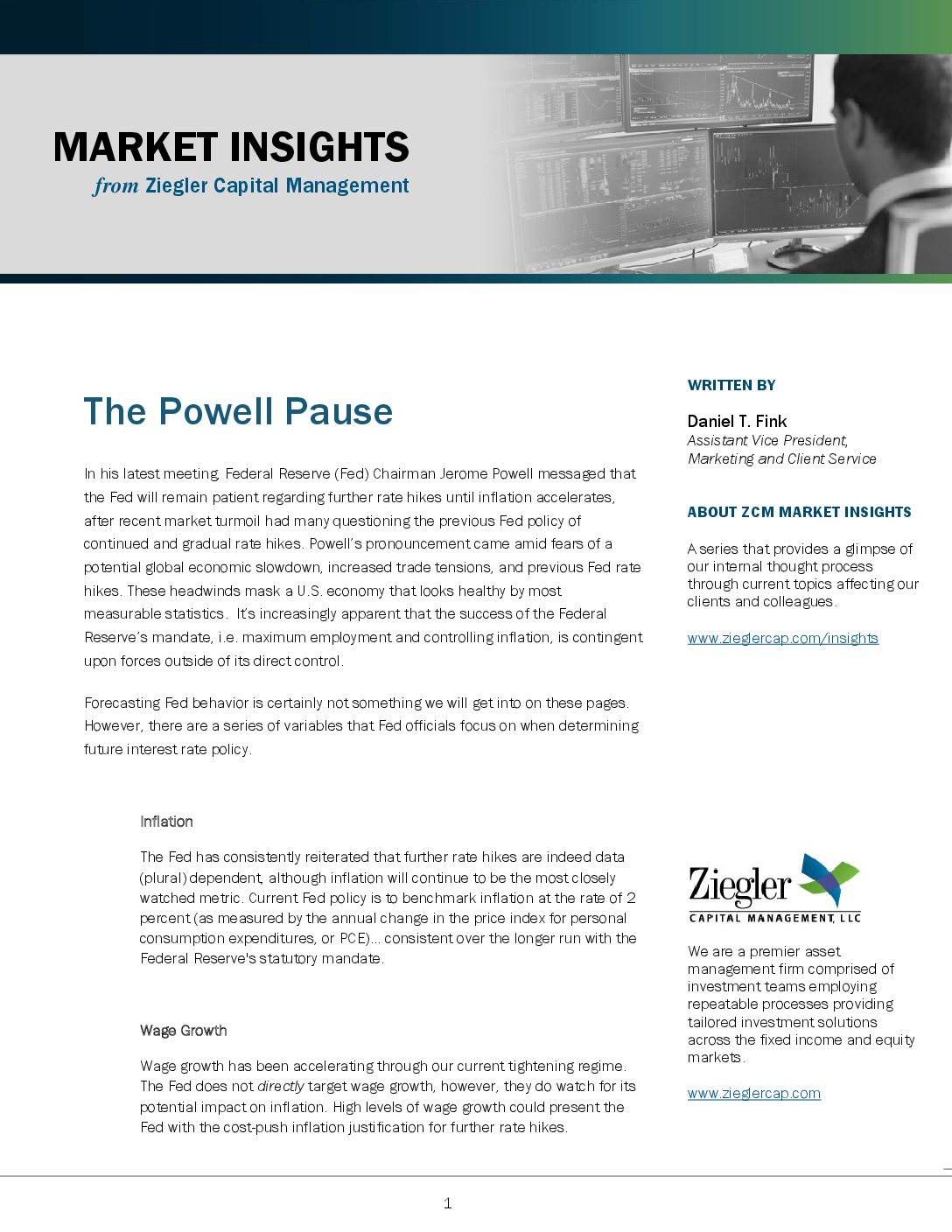
In his latest meeting, Federal Reserve (Fed) Chairman Jerome Powell messaged that the Fed will remain patient regarding further rate hikes until inflation accelerates, after recent market turmoil had many questioning the previous Fed policy of continued and gradual rate hikes. Powell’s pronouncement came amid fears of a potential global economic slowdown, increased trade tensions, and previous Fed rate hikes. These headwinds mask a U.S. economy that looks healthy by most measurable statistics. It’s increasingly apparent that the success of the Federal Reserve’s mandate, i.e. maximum employment and controlling inflation, is contingent upon forces outside of its direct control. Forecasting Fed behavior is certainly not something we will get into on these pages. However, there are a series of variables that Fed officials focus on when determining future interest rate policy.
Inflation
The Fed has consistently reiterated that further rate hikes are indeed data (plural) dependent, although inflation will continue to be the most closely watched metric. Current Fed policy is to benchmark inflation at the rate of 2 percent (as measured by the annual change in the price index for personal consumption expenditures, or PCE)… consistent over the longer run with the Federal Reserve’s statutory mandate.
Wage Growth
Wage growth has been accelerating through our current tightening regime. The Fed does not directly target wage growth, however, they do watch for its potential impact on inflation. High levels of wage growth could present the Fed with the cost-push inflation justification for further rate hikes.
State of the Global Economy
Clearly, Federal Reserve Chairman Powell has been convinced by recent global market turmoil that caution is in the Fed’s best interest. Elevated U.S. rates highlight how the current U.S. economic cycle far outpaces other global economies.
After analyzing current data and Fed statements, we feel the Fed has justifiably moved to a more neutral position regarding future rate hikes.
Ziegler Capital Management, LLC is a wholly owned subsidiary and affiliated SEC Registered Investment Adviser of Stifel Financial Corp. This material is based upon information that we consider reliable, but we do not represent that it is accurate or complete and it should not be relied upon as such. pinions expressed are our current opinions as of the date appearing on this material only. No part of this material may be duplicated or redistributed without Ziegler Capital Management’s prior written consent. All investments involve risk, including the possible loss of principal, and there is no guarantee that investment objectives will be met. Equity securities are subject generally to market, market sector, market liquidity, issuer, and investment style risks, among other factors to varying degrees. Equity securities may rise and decline in value due to both real and perceived market and economic factors as well as general industry conditions. Indices are unmanaged, do not reflect fees and expenses, and are not available as direct investments.